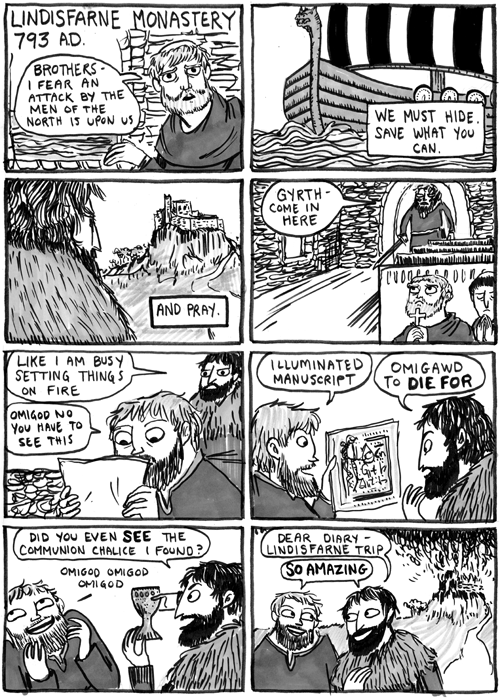For a few months now I've been weighing the pros and cons of buying an E-Reader. There are many debates surrounding this issue. One debate is which device to buy: Nook (Barnes & Noble); Kindle (Amazon); Kobo; Sony. Once you decide which device you like the best (I’m leaning toward the Nook), there’s the issue of the catalog behind it. Although, for the most part, they’re all going to have the bestsellers and such.
The reason I’m leaning toward the Nook is that it’s small, touchscreen and e-ink. Yes, I’m only interested in e-ink, because what I really want to do is read text that I would otherwise have to read on my computer (or print, but that would waste a lot of paper). I’m trying to avoid LCD lights shining into my eyes.
This leads to another debate: electronics vs. real books. I prefer real books. I love the feel of the paper; I love the smell of a used bookstore. I’m also a visual and kinesthetic learner: I remember that Milly said, “Wasn’t this the damnedest thing?” on the top of the right page, about a quarter of the way through the book, although I may not remember the page number. This is something that will be lost with an E-Reader. While there will still be “page numbers,” they will seem arbitrary, and there will be no left and right pages, no top and bottom.
Sidenote: once books disappear entirely, pages will become an abstract idea. A marker in the text, yes, but for someone who has never seen a real book, it will have no concrete meaning. Like “dialing” a phone number for someone who’s never seen a rotary phone.
Sidenote: Yes, I believe that eventually books will disappear. Maybe not entirely. Maybe they’ll still exist in poorer countries, and religious groups may still print their holy books, but the big publishing companies will be something very different, if they’re around at all. I’m talking about the distant future here.
I’m not a luddite. I like change, although I’m not generally the first person go out and buy the newest gadget. I’ve been burned before; I bought a Minidisc player in high school. Of course there are pros and cons to E-Readers, and for the most part the pros outweigh the cons. But here’s the problem I see, the one problem that has deterred me from buying an E-Reader: you can only buy/download books from huge corporations.
Powell’s, the biggest independent bookstore, is fighting to be in the game. Google ebooks and Adobe Digital Editions can be read on Nook, Kobo and Sony, but there’s no mention of Kindle. This is where it starts to get complicated and I want to reach for a paperback and forget the whole electronic thing.
And then there are libraries. While an electronic file can be downloaded many, many times, this benefits the publishing house, not the library. Harper Collins recently limited the number of times the library can lend an eBook to twenty-six. This is estimated to be the lifespan of a real book. After twenty-six times, the library would have to buy another copy from the publisher. Of course, publishers need to make money too so they can pay their authors and CEO and everyone. I'm not saying they're completely wrong here, but are they the only ones who should benefit from the eternal life of eBooks? Shouldn't we all be able to benefit from technological advances?
I want an E-Reader that will allow me to download books from anywhere. I don’t want to buy the Nook and then only be able to buy books from Barnes & Noble, although I know that’s exactly what they want. I also want to be able to buy books from small, local bookstores, but even if we could, small bookstores don’t have the manpower to convert paper into computer files. And, why would a person go to the store to buy something they can download at home?
The point here is that E-Readers seem to favor large corporations, and I really want to support the local stores, where local writers hold readings. I don’t think there’s an easy answer here, and I’m afraid that one day soon I’ll give in and buy a Nook. I’ll buy it so that I can read PDFs, like all the submissions 5x5 gets, but then I’ll want to buy a new book, and the electronic version will be cheaper than the paper version, and “I don’t have time to stop by the store before work, but I can download it right now before I leave the house,” and I don’t have room on the shelf for another book anyway.
When I started 5x5, I advertized it as a real magazine, printed and mailed. Since then, we’ve gotten requests for an electronic version. What do you think?



